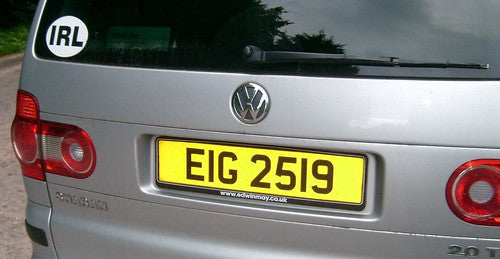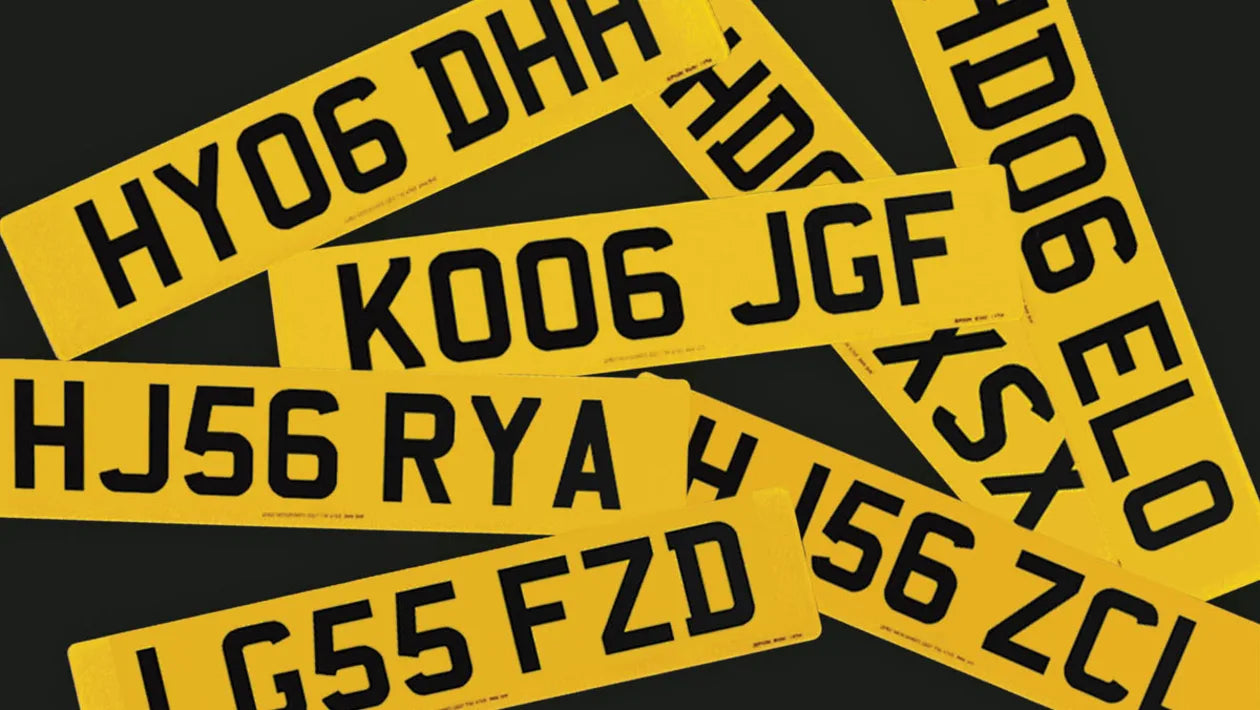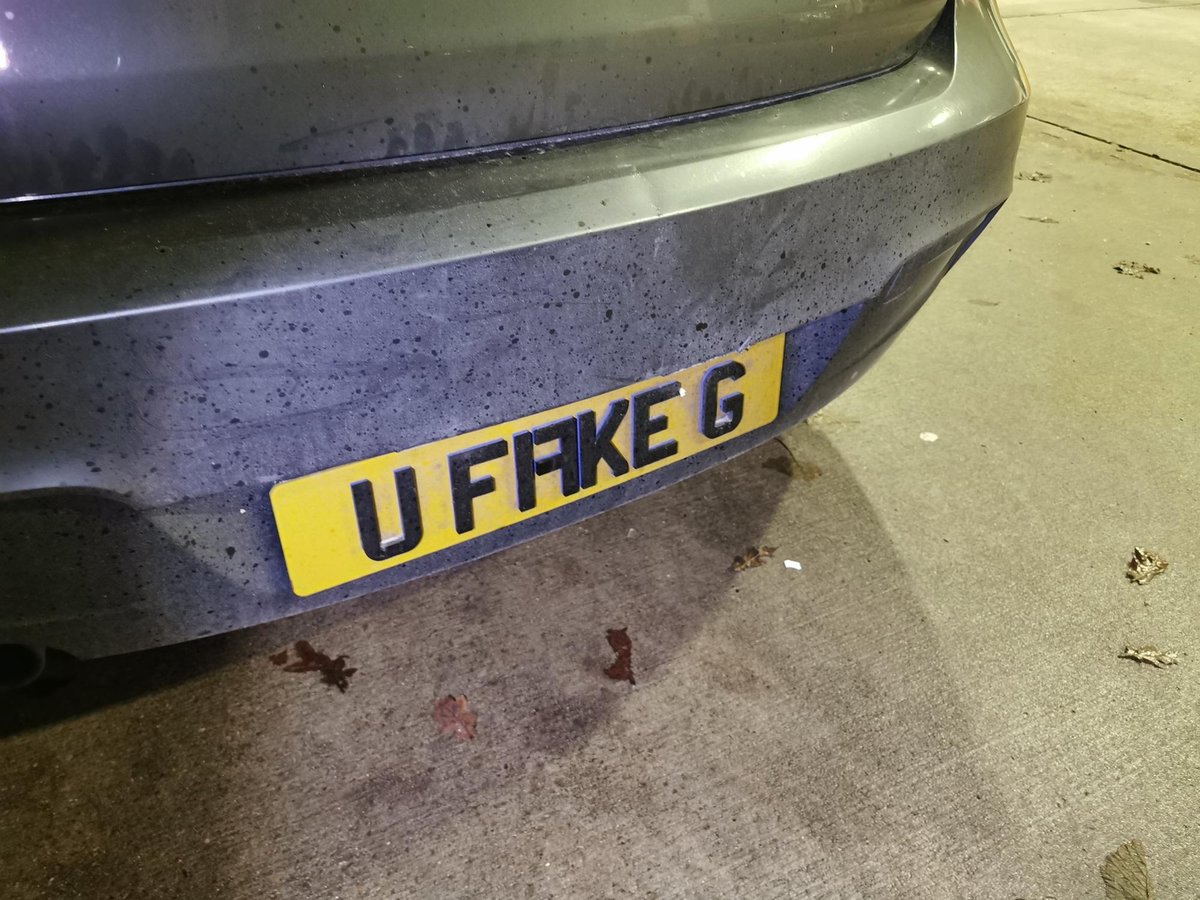
Are Tinted Number Plates Road Legal in The UK?
, by Reece Dennis, 8 min reading time

, by Reece Dennis, 8 min reading time
Are you considering getting tinted number plates for your vehicle in the UK? Before making any decisions, it's important to know if tinted number plates are road legal. In this article, we will explore the legality of tinted number plates in the UK and provide you with all the information you need to make an informed choice.
According to the DVLA (Driver and Vehicle Licensing Agency), the color of number plates must comply with the regulations set out in the Road Vehicles (Display of Registration Marks) Regulations 2001. These regulations specify that number plates in the UK must have black characters on a white background on the front, and black characters on a yellow background on the rear. Any variations from these standard colors are deemed illegal.
So, are tinted number plates legal in the UK? The answer is no. Tinted number plates, along with plates with a different background color, are not road legal. Failure to comply with these regulations can lead to penalties, fines, or even the rejection of your vehicle during an MOT test.
It's crucial to ensure that your vehicle is fully compliant with the number plate regulations to avoid any legal issues. Let's delve further into the reasons why tinted number plates are not road legal in the UK.

According to the DVLA (Driver and Vehicle Licensing Agency), the color of number plates must comply with the regulations set out in the Road Vehicles (Display of Registration Marks) Regulations 2001. These regulations specify that number plates in the UK must have black characters on a white background on the front, and black characters on a yellow background on the rear. Any variations from these standard colors are deemed illegal.
The purpose of these regulations is to ensure that number plates are easily readable and identifiable. By having a consistent color scheme across all vehicles, it becomes easier for law enforcement agencies and automated systems to quickly identify and track vehicles. These regulations also help prevent fraudulent activities such as number plate cloning.
So, are tinted number plates legal in the UK? The answer is no. Tinted number plates, along with plates with a different background color, are not road legal. Failure to comply with these regulations can lead to penalties, fines, or even the rejection of your vehicle during an MOT test.
Tinted number plates may seem appealing to some vehicle owners as they provide a unique and personalized look. However, it's important to remember that the primary purpose of a number plate is to ensure proper identification of a vehicle. Tinted plates can make it difficult for law enforcement agencies and other drivers to read the registration number, especially in low light conditions or when viewed from certain angles.
Additionally, tinted number plates can interfere with automated systems such as speed cameras and ANPR (Automatic Number Plate Recognition) systems. These systems rely on clear and legible number plates to accurately capture and process data. The use of tinted plates can lead to errors in identification, potentially resulting in incorrect penalty notices or a failure to track vehicles involved in criminal activities.
Using tinted number plates may seem like a harmless customization option for your vehicle, but it can have serious consequences. Firstly, using tinted number plates is a violation of the law and can result in penalties and fines. Law enforcement agencies have the authority to issue penalties to drivers who are using illegal number plates. These penalties can vary depending on the severity of the offense and the discretion of the issuing officer.
In addition to penalties and fines, using tinted number plates can also lead to the rejection of your vehicle during an MOT (Ministry of Transport) test. During an MOT test, vehicles are inspected to ensure they meet the necessary safety and environmental standards. If your vehicle is found to have illegal number plates, it can be deemed unroadworthy and fail the test. This can result in the need for costly repairs or modifications to bring your vehicle back into compliance.
When considering any customization options for your number plates, it's crucial to choose a reputable provider. There are numerous providers in the market, both online and offline, but not all of them adhere to the necessary standards and regulations. To ensure you choose a reputable number plate provider, consider the following factors:
By choosing a reputable number plate provider, you can be confident that the plates you receive will be of high quality and comply with all the necessary regulations.
While tinted number plates are not currently road legal in the UK, it's worth noting that regulations and standards can change over time. There have been discussions and debates surrounding the use of tinted number plates, particularly in the context of technological advancements and the need for improved vehicle identification systems.
Some argue that advancements in ANPR technology can accommodate tinted number plates without compromising accuracy. However, any changes to the regulations would require careful consideration of various factors, including the impact on law enforcement, public safety, and the potential for misuse or fraudulent activities.
It's always advisable to stay updated with any changes or updates to the regulations regarding number plates in the UK. The DVLA and other relevant authorities will provide official information and guidance on any modifications to the current rules.
Q: Can I use tinted number plates for show or exhibition purposes only?
A: No, tinted number plates are not road legal regardless of the purpose or context in which they are used. The regulations governing number plates apply to all vehicles on public roads.
Q: Are there any exceptions to the regulations regarding number plate colors?
A: In certain cases, vehicles with historical or classic status may be exempt from the standard color requirements. However, these exemptions are limited and must be approved by the DVLA.
Q: Can I use removable tinted film on my number plates?
A: No, using removable tinted film or any other methods to alter the appearance of your number plates is also not road legal. The regulations specify the colors and materials that must be used for number plates.
Q: Are there any alternatives to tinted number plates for customization?
A: Yes, you can personalize your number plates within the legal boundaries. Options include private number plates, border designs, and badges that can be added to the standard plates.
Q: What should I do if I see a vehicle with tinted number plates?
A: If you come across a vehicle with tinted number plates, you can report it to the local authorities or the DVLA. They have the authority to take appropriate action against the vehicle owner.
In conclusion, tinted number plates are not road legal in the UK. The regulations set out by the DVLA require number plates to have black characters on a white background on the front, and black characters on a yellow background on the rear. Using tinted number plates or plates with a different background color can lead to penalties, fines, or the rejection of your vehicle during an MOT test.
While tinted number plates may offer a unique and personalized look, it's important to prioritize compliance with the regulations to ensure proper identification of your vehicle. There are legal alternatives available for customization, such as private number plates and border designs, which allow you to add a personal touch to your plates while still maintaining compliance.
When considering any customization options for your number plates, choose a reputable provider who adheres to the necessary regulations. DIY installation of number plates, including tinted plates, is not recommended. Professional installation ensures proper alignment and fixing, ensuring your plates remain securely in place.
Stay informed about any changes or updates to the regulations regarding number plates in the UK. The future of tinted number plates may evolve with advancements in technology and discussions within relevant authorities. Nevertheless, it's always important to prioritize compliance and safety when it comes to your vehicle's number plates.




